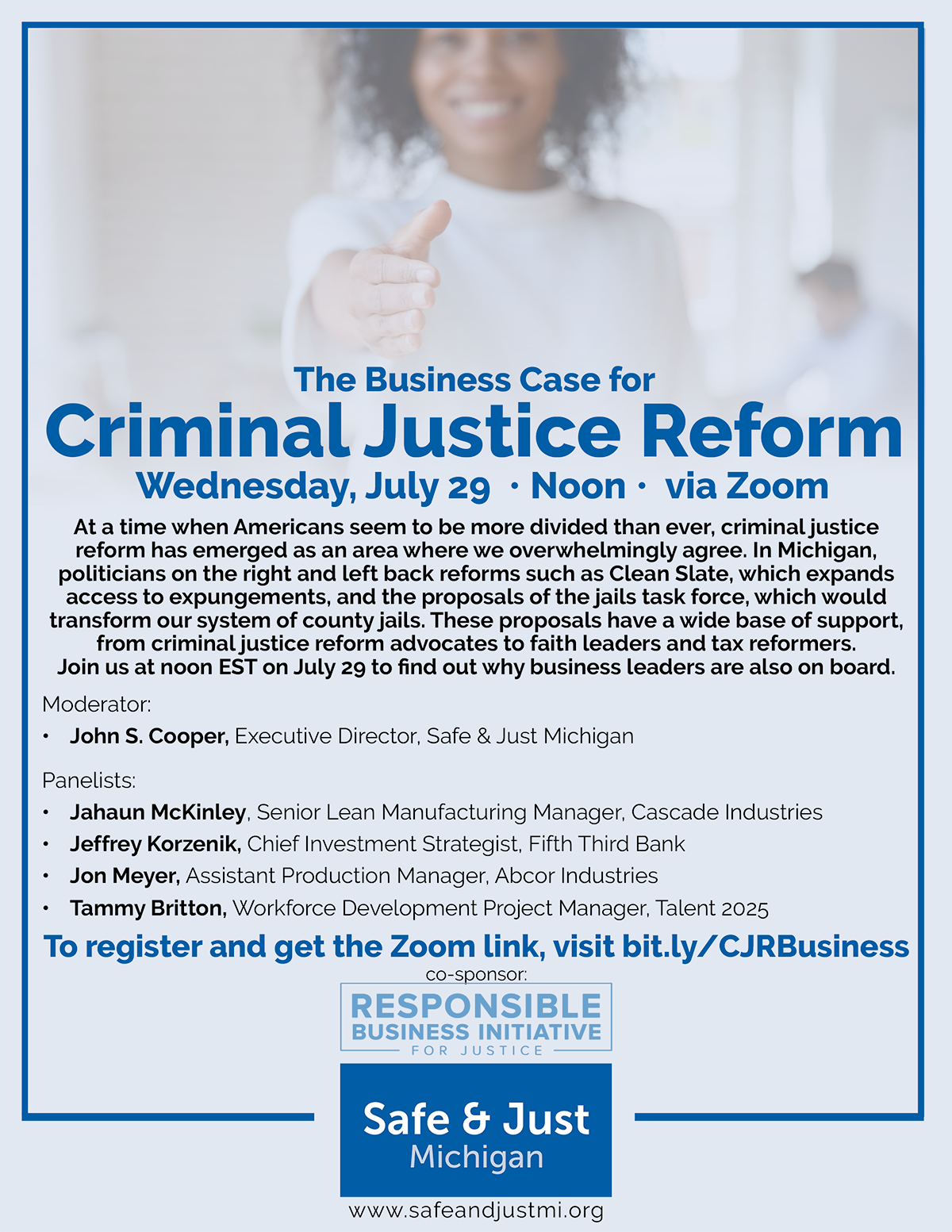Michigan has often struggled to find people qualified to fill certain jobs, such as skilled trades workers and health care professionals. Licensing laws that are structured to prohibit anyone with a criminal past from obtaining a requisite license and screening questions on job applications that rule out anyone with a conviction have deepened the skills gap. This has left a potential source of skilled, trained and work-ready employees untapped.
It’s not workers and business owners who succeed when someone with a record obtains a good job, however. People who hold good-paying jobs can provide for their families and achieve economic stability, which helps lift the entire community. Unfortunately, people with a criminal record struggle with unemployment rates that hovered around 25 percent before the COVID-19 crisis struck. As more people with a criminal record find good-paying jobs, they participate more fully in local economies, which benefits everyone.
Business leaders often say they have practical reason for hiring the formerly incarcerated and people with felony convictions: they make good employees. Studies show that people with a criminal past have lower turnover than other employees. And sometimes, training programs they participated in while they were incarcerated or after their release provided them with exactly the skills an employer need.
Representatives of Michigan’s business community explained why entrepreneurs, hiring managers, executives and other business leaders are becoming increasingly open to hiring people with a criminal past and are among the strongest backers for criminal justice reform in Michigan, according to panelists who took part in a Zoom discussion Wednesday. The discussion, co-sponsored by Safe & Just Michigan and the London-based Responsible Business Initiative for Justice, brought together Cascade Engineering Senior Lean Manufacturing Manager Jahaun McKinley, Fifth Third Bank Chief Investment Strategist Jeffrey Korzenik, Abcor Industries Assistant Production Manager Jon Meyer, and Talent 2025 Workforce Development Project Manager Tammy Britton. Safe & Just Michigan Executive Director John S. Cooper moderated the panel discussion.
Issues discussed include:
- Barriers to employment faced by people who have a criminal record, and the consequences of those barriers on them, their family, and communities.
- The economic benefits for companies in Michigan that have hired people with criminal records.
- Successful components of a second chance hiring model.
- Reasons why the business community should care about reforming the criminal justice system.
- The importance of employment in creating safe communities and effective reentry for people who are formerly incarcerated.
Resources for information that were made available in the chat box:
- Barriers to Successful Re-Entry of Formerly Incarcerated People
- Barriers to Employment for Formerly Incarcerated Women
- Survey of HR Professionals, Managers, and Non-managers on Experiences with Employees who were Formerly Incarcerated
- Expungement of Criminal Convictions: An Empirical Study (Prescott & Starr 2020)
- Back to Business: How Hiring Formerly Incarcerated Job Seekers Benefits Your Company
Please click the link to watch a recording of the whole conversation, or watch below:

